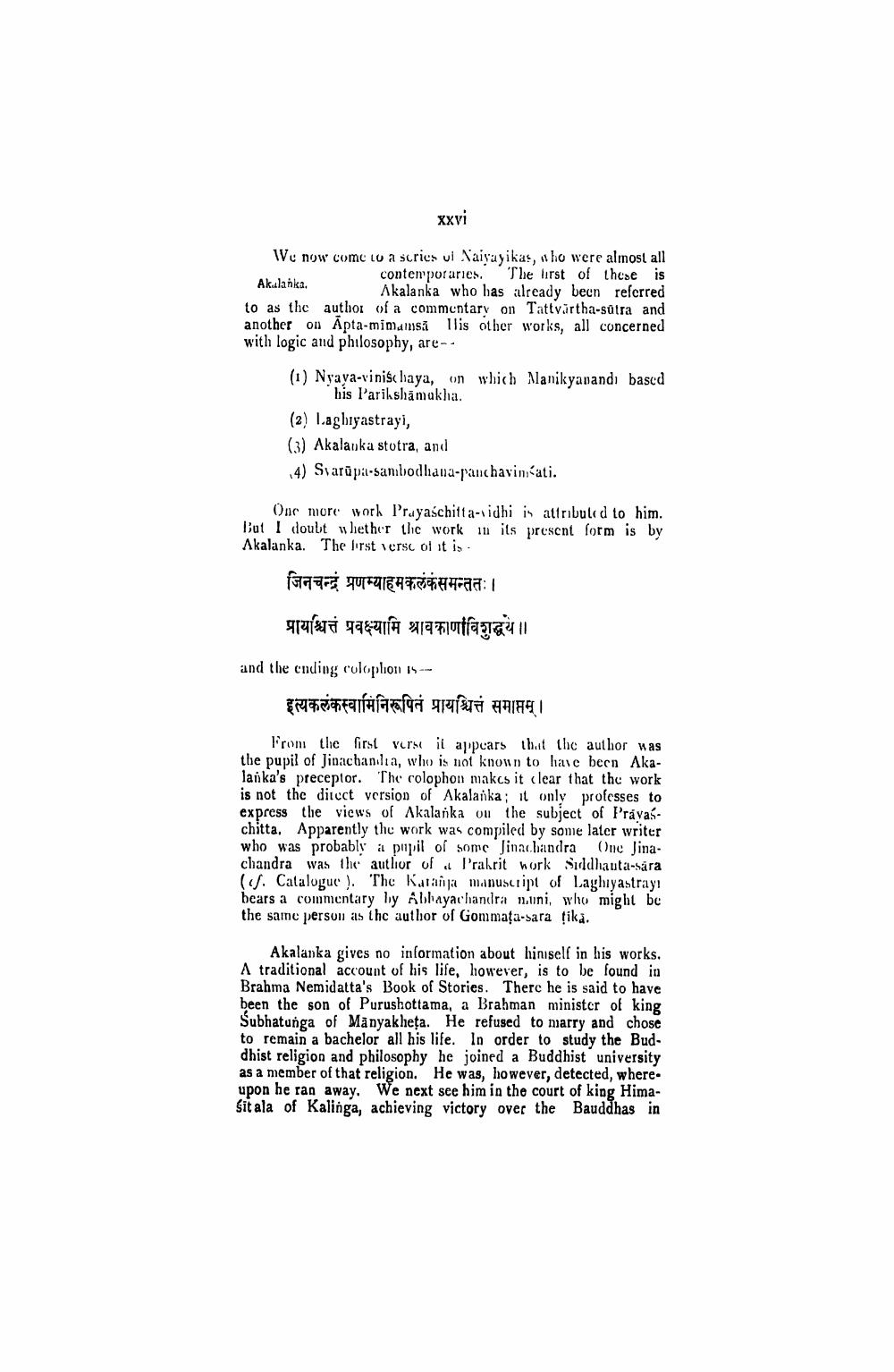________________
Xxvi
We now come to a scries vi Naivayikas, who were almost all
contemporaries. The first of these is Akulanka.
Akalanka who has already been referred to as the author of a commentary on Tattvärtha-sutra and another on Apta-mimams llis other works, all concerned with logic and philosophy, are-.
(1) Nyaya-vinischaya, on which Manikyanandı based
bis Parikslāmakha. (2) Lagbigastrayi, (3) Akalauka stotra, and 4) Svarūp:i-sanbodhana-panchavinati.
One more work Prayaschitta-kidhi is attributed to him. But I doubt whether the work in its present form is by Akalanka. The first verse of it is.
जिनचन्द्रं प्रणम्याहमकलंकसमन्ततः ।
प्रायश्चित्तं प्रवक्ष्यामि श्रावर
and the ending colophion Is ---
इत्यकलंकस्वामिनिरूपितं प्रायश्चित्तं समाप्तम् ।
From the first verse it appears that the author was the pupil of Jinacbanlia, who is not known to have been Akalanka's preceptor. The colophon makes it clear that the work is not the direct version of Akalanka; it only professes to express the views of Akalarka ou the subject of Právaschitta. Apparently the work was compiled by some later writer who was probably a pupil of some Jinachandra One Jinachandra was the autlior of a Prakrit work Siddhauta-sára
. Catalogue ). "The Karanja manuscript of Laghiyastrayı bears a commentary liy Ablayachandra nuni, who might be the same person as the author of Gommata-sara fika.
Akalanka gives no information about hinisell in his works. A traditional account of his life, however, is to be found in Brahma Nemidatta's Book of Stories. There he is said to have been the son of Purushottama, a Brahman minister of king Subhatunga of Manyakheța. He refused to marry and chose to remain a bachelor all his life. In order to study the Buddhist religion and philosophy he joined a Buddhist university as a member of that religion. He was, however, detected, where upon he ran away. We next see him in the court of king Himasit ala of Kalinga, achieving victory over the Bauddhas in




